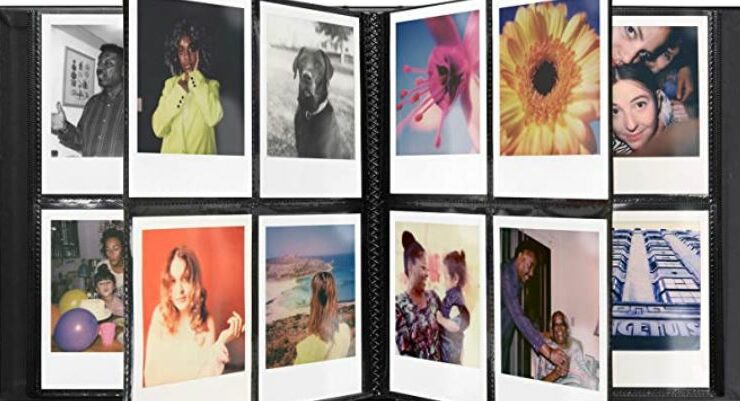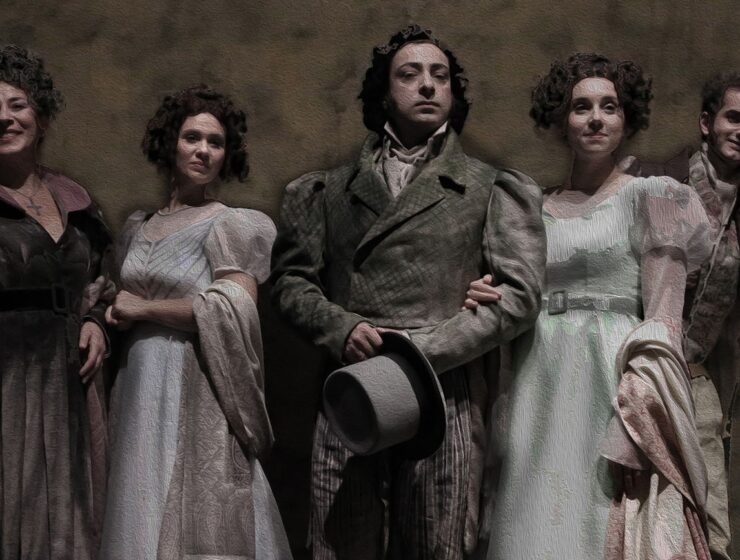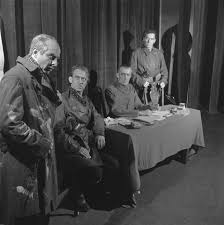Tristan. “En wat ik van Pierre heb geleerd, is goed luisteren, niet alleen naar die muziek, maar ook naar wat er om je heen gebeurt, de mensen. Signalen opvangen om zo een heel proces in goede banen te kunnen leiden. Op die manier kan iets vorm krijgen en ben je niet bezig met een waarheid brengen, zover die zou bestaan.”
Opera. There is no well-drafted story with reasons why a libretto does not need to be respected. One gets no further than nonsensical one-liners. The fallacies with which Johnny Modern tries to justify the Entführung aus dem Serail placed in a brothel have long been known.
Adelson e Salvini. Adelson e Salvini is one of those opera titles that even many Bellini lovers discover late or not at all; understandable, because it is an opera that balances between “promising” and “unfinished.”
Adelson e Salvini. Adelson e Salvini is een van die operatitels die zelfs veel Bellini-liefhebbers pas laat of helemaal niet ontdekken; begrijpelijk want het is een opera die balanceert tussen “veelbelovend” en “onaf”.
The Secret Opera Lover. He nods approvingly when the terms “deconstruction,” “reinterpretation” and “actualization” are mentioned. And when wine is drunk in the foyer afterwards, he always has a phrase ready that anchors him safely in the troupe: “This is 2025, not 1850.” But deep inside – beneath the layer of socially desirable modernity – lurks a carefully kept secret. Homesickness. A gentle but insistent longing for something that is considered highly suspect in opera circles of contemporary people: opera that is true to the libretto and the episode.
The secret opera connoisseur. Das Syndikat sagt NEIN! ( The Syndicate says NO! )
De geheime operakenner. Das Syndikat sagt NEIN!
Violetta. Dat ze er ondertussen bloed bij ophoest, is een psychosomatische vooruitwijzing naar de Eerste Wereldoorlog. Haar echte betekenis ligt in haar indrukwekkende vermogen om het repugnante demasqué der onwaarachtigheid op esthetische, quasi-esthetische wijze zo u wilt, te presenteren.
Norma. Bellini\\\’s Norma is rather ambiguous in musical terms. On paper, the orchestra often seems sober and \\\’standard\\\’ bel canto, but in an excellent performance, the work can be mesmerising. Norma is entirely dependent on top-quality vocals. Bellini writes long phrases that offer little \\\’foothold\\\’ to singers who do not have exceptional legato. \\\’Casta diva\\\’ unfolds deliberately simply and slowly, but with too broad a vibrato, the aria becomes a series of loose, beautiful notes. This applies equally to the following cabaletta \\\’Ah! bello a me ritorna\\\’: if the tempo is too mechanical, virtuosity turns into routine and the music only sounds accelerating \\\’because that\\\’s how it\\\’s supposed to be\\\’.
Norma. Bellini’s Norma is in muzikaal opzicht nogal tweeslachtig. Op papier lijkt het orkest vaak sober en “standaard” belcanto, maar in een voortreffelijke uitvoering kan het werk hypnotiserend werken. Norma is volledig afhankelijk van vocale topkwaliteit. Bellini schrijft lange bogen die nauwelijks “houvast” bieden aan zangers die niet over een uitzonderlijk legato beschikken. “Casta diva” vouwt zich doelbewust eenvoudig en langzaam uit, maar met een te breed vibrato wordt de aria een reeks losse mooie noten. Dat geldt evenzeer voor de erop volgende cabaletta “Ah! bello a me ritorna”: als het tempo te mechanisch is, verandert virtuositeit in routine en klinkt de muziek alleen versnellend “omdat het u eenmaal zo hoort”.








